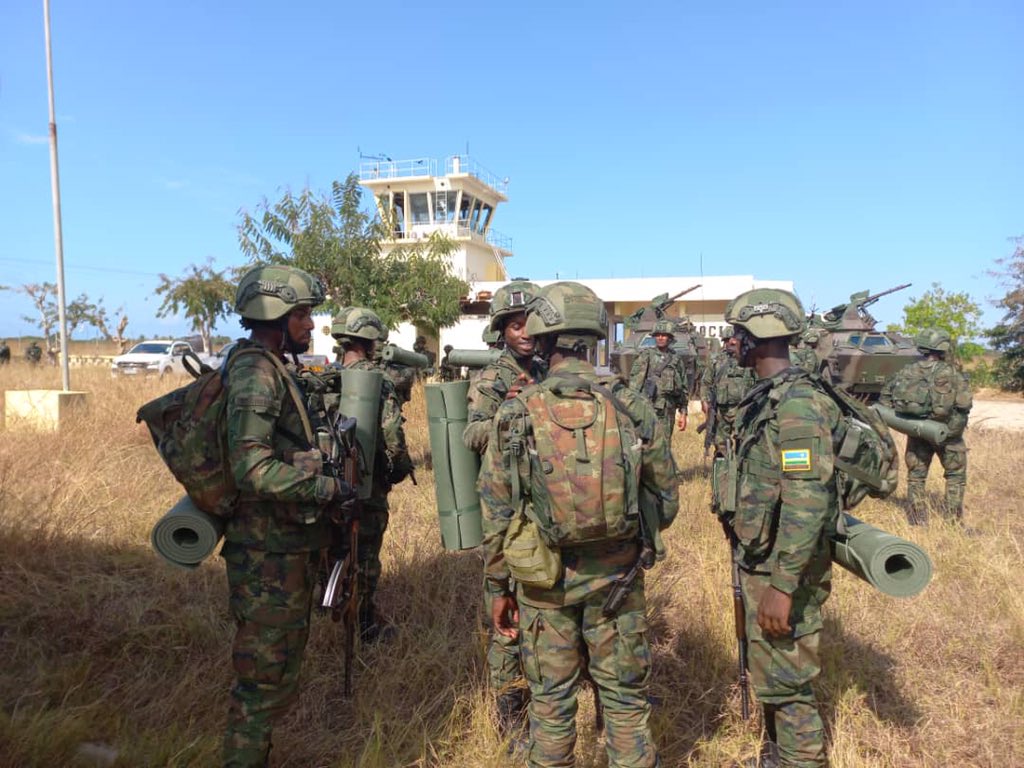

There has been fevered speculation about the reasons behind Rwanda’s military presence in Mozambique and the chances to overturn a situation that hasn’t ceased to worsen over the past five years.
And as the excitement of the first few days and weeks settles down, there will almost certainly be more suppositions, masquerading as analyses. Little if any of it, will even make the attempt to consider broadening their thinking to considering the intervention from a Rwandan perspective.
That there will be complex negotiated arrangements, to which the media will not be privy, is inevitable in any conflict resolution. The existence of these agreements will no doubt fuel further speculation.
But whatever these arrangements are, they will all rest on the foundational values of Rwanda’s military, the Rwanda Defence Force (RDF), and its main governing party, the Rwanda Patriotic Front, or RPF.
Steeped in Rwandan culture and history, these values have been thrown into sharper relief, by Rwanda’s recent history.
The twentieth century was catastrophic for Rwanda.
Few countries have greater cause to lament the ravages of colonialism.
A society riven asunder, intermittent genocidal massacres, scattering Rwandans to every corner of the world, as they sought refuge, culminating in the 1994 genocide against the Tutsi.
The RPF had been a movement formed to transform Rwanda, working with all Rwandans, peacefully, but, if need be, by force of arms.
They found themselves having to stop a genocide, in which more than a million men, women and children, were left to their fate, by a world that led the killers to believe they could murder at will, with complete impunity.
For the RPF, Never Again, the Right to Protect, would be more than mere words and look no further for Rwanda’s commitment to the United Nations’ principle of R2P.
Rwandans would never suffer any other people to be abandoned, bereft of anywhere safe to turn, as they and their loved ones had been.
It is also from the same historic experience that the RPF’s armed wing, the RPA, became the cornerstone of the current Rwandan military.
Understanding the RPA’s military experience and achievements would shed more light in analysing military missions beyond the country’s borders.
When the RPA started its liberation war against the genocidal government of Habyarimana in 1990, they were only a few thousands ill equipped volunteer "combatants”, short of everything, even uniforms.
The army that faced them, included not only Habyarimana’s forces, the then Rwandan army, but also their allies from Zaire, now Democratic Republic of Congo (DRC), and a number of French special forces.
And unlike the RPA forces, these combatants had an unlimited supply of equipment not only from France, but Belgium, the former colonial master.
Yet from being the absolute underdogs, the RPF, under the command of then General Paul Kagame, turned the tables on the enemy, even when confronted with the added grave responsibility to stop a genocide.
In four years, the RPA command, with Kagame at the helm, had turned a group of young volunteers into a highly disciplined army, which fought, unpaid, for a cause for which they were ready to die.
Above and beyond a steely military discipline, the young fighters were inculcated in the values of their forefathers, always to serve the Rwanda nation, which meant individuals Rwandans. To these values, were added the liberation ideas of Pan-Africanism. These are the foundations that continue to define the Rwanda military today.
It is from these values that one must start to understand the source of the principles by which the Rwanda Defence Force (RDF), and the Rwanda National Police (RNP) hold themselves.
It is to these that anyone wishing to understand Rwanda’s military deployments, whether in the Central African Republic, Sudan, Haiti, and now, bilaterally, Mozambique, should look.
The Rwanda forces were a completely different species, from the Russian and South African mercenaries, in which the Mozambican army had placed its hope of defeating the Islamic extremists.
In four years of a deepening crisis, the country had lost the vast and economically important territory of Cabo Del Gado.
The French petroleum giant, Total, had given up on the $20 billion gas project, the largest on the African continent.
The toll on the ordinary people of the region was incalculable. Thousands were murdered, many beheaded, in the macabre perversion of Islam.
An estimated 800,000, people were internally displaced, thrown in a limbo, as they waited for a return of security that seemed far from guaranteed.
The latest news is that the Islamic insurgents, have been driven out of their last remaining refuge, in the forests surrounding their former headquarters in Mocimboa da Praia, by a joint offensive of the Rwandan and Mozambican armies.
Most independent observers, including the African Development Bank (AfDB) believe that business will soon resume as normal.
Rwanda has in essence accomplished its mission.
It has matched its adherence to Pan Africanism with action. There will no doubt be further agreements, perhaps entailing a training mission for their Mozambican counterparts. But for now, it is mission accomplished.
For Mozambique, the priority will be to resettle the people driven out of their homes. The country will then need to look at its own, internal steps that led up to the disaster.
Professional as Rwanda’s forces may be, Mozambique will have to ask itself why it took the RDF barely a month, to see off an insurgency that had held the country hostage for the best part of fours years.


